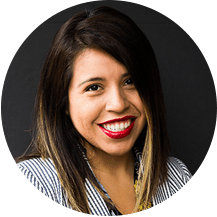Recently, there have been a surge of #immigration themed posts on social media platforms promising an easy path to adjustment of status, a process whereby an applicant can legalize their immigration status without leaving the United States. The attorneys in believe they have found easy solutions for hopefuls stuck in the most difficult immigration scenarios. These Tik-tok and Instagram posts profess to provide “secret strategies” for the following often asked questions:
- I have a deportation order; can I fix my legal status from within the United States?
- Do I have to leave the United States to fix my papers?
- I have a child over 21-years-old, and I entered illegally, can I legalize my status inside the United States?
- I’ve entered the United States multiple times without authorization, can I legalize my status?
- I’ve been told that I have something called the permanent bar, can I legalize my status?
What these flashy ads and tik-tok videos usually fail to disclose is the form of relief whereby the above scenarios are remedied. There is no “magic cure all” for these complex immigration problems. Instead, these videos and posts are most frequently alluding to adjusting status via a humanitarian type of visa for victims of domestic violence in the United States under the Violence Against Women Act (“VAWA”).
Under VAWA, a noncitizen who is a victim of domestic violence, elder abuse, or child abuse can “self-petition” and receive permanent residence without depending on a petition from their abuser. Despite the name of the act, these humanitarian visas are not exclusive to any specific gender. With an approved VAWA self-petition, any eligible noncitizen can also apply for lawful permanent residence.
The following noncitizens are eligible to file for VAWA:
- Spouses and former spouses of abusive U.S. citizens or lawful permanent residents
- Children of abusive citizens or lawful permanent residents who file before they turn 25
- Parents of an abused noncitizen child
- Spouses whose children are abused by the child’s other U.S. citizen or lawful permanent resident parent
- Parents of an abusive U.S. citizen son or daughter
To qualify for VAWA, an applicant must prove:
- He/She suffered battery and or extreme cruelty by the abuser
- The relationship to the abuser
- The marriage was entered into in good faith, if the abuser is a spouse or step-parent
- Residence with the abuser
- Good moral character
VAWA provides protections for victims of abuse and provides them with avenues for overcoming common barriers to adjustment of status. For example, VAWA applicants are eligible to adjust status even if they entered without inspection, usually a bar of inadmissibility that results in a denial for non-VAWA adjustment of status applicants.
In addition, VAWA applicants can overcome the permanent bar or subsequent reentry after their removal from the United States by applying for a waiver and demonstrating a connection between the abuse they suffered and their removal, departure, or reentry.
VAWA is a great benefit for those who need it most. Applicants should be prepared to provide extensive documentation showing the abuse.
If you or a loved one believe you might be eligible for this form of immigration relief. Contact us for individualized advice on your immigration situation. We offer free consultations at our offices in Orange, Riverside, Fresno, Sacramento, and San Francisco, California; Salt Lake City and Orem, Utah; and Boise, Idaho.
ABOUT THE AUTHOR(S)
LAUREN M. FLORES – ASSOCIATE ATTORNEY
Lauren M. Flores is an associate attorney at Orange Office of Wilner & O’Reilly, APLC. She is a native of Compton, CA and a proud daughter of an immigrant father. Her primary and secondary education took place in the neighborhoods of Huntington Park, South Central, and Boyle Heights—she has a special affinity for these communities. She graduated from Brigham Young University where she earned a Bachelor of Arts in Journalism with Minors in Spanish, Editing, and International Development. She received her Juris Doctor from the J. Reuben Clark Law School at Brigham Young University. During her time in law school, she served as an associate editor, lead editor, and finally executive editor for the Brigham Young University Education and Law Journal. She is passionate about education and furthering the opportunities for inner city youth to have access to higher education.
KELLY S. O’REILLY – FOUNDING PARTNER

Kelly O’Reilly is a founding partner with Wilner & O’Reilly, APLC, and a former Immigration Officer with Citizenship and Immigration Services in Los Angeles and Orange County. With over 18 years working as an immigration attorney, he is an expert in all facets of Immigration Law and one of the best immigration attorneys serving Orange County and Riverside County. A native of Fresno, California, Mr. O’Reilly received his law degree from the University of La Verne, College of Law and his Bachelor of Science degree from Brigham Young University. A former missionary in Hong Kong, Mr. O’Reilly has a great love of Chinese culture and is conversant in Cantonese.


Comments are closed.